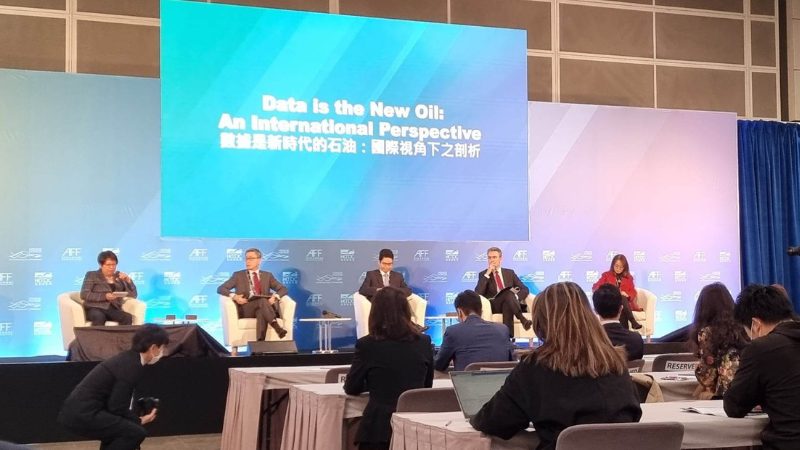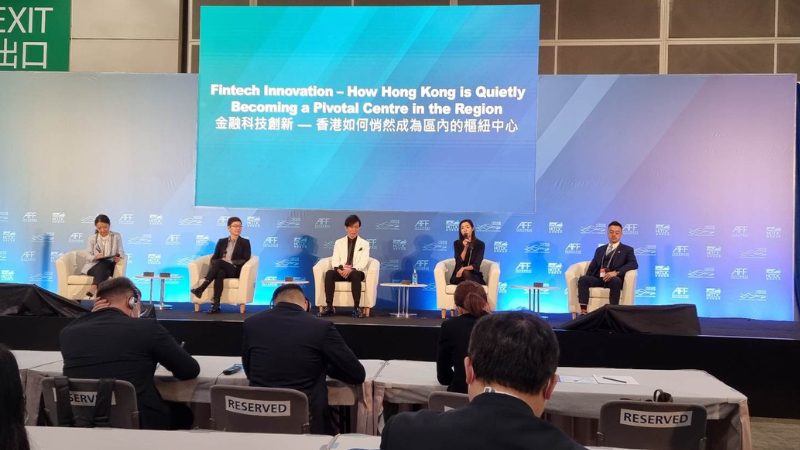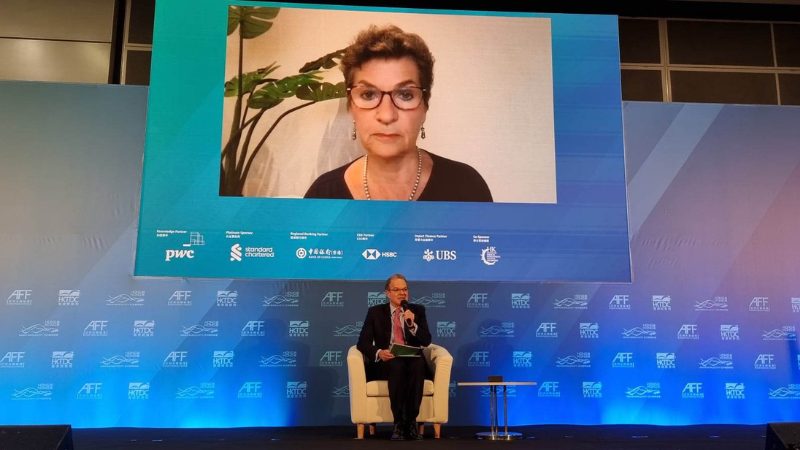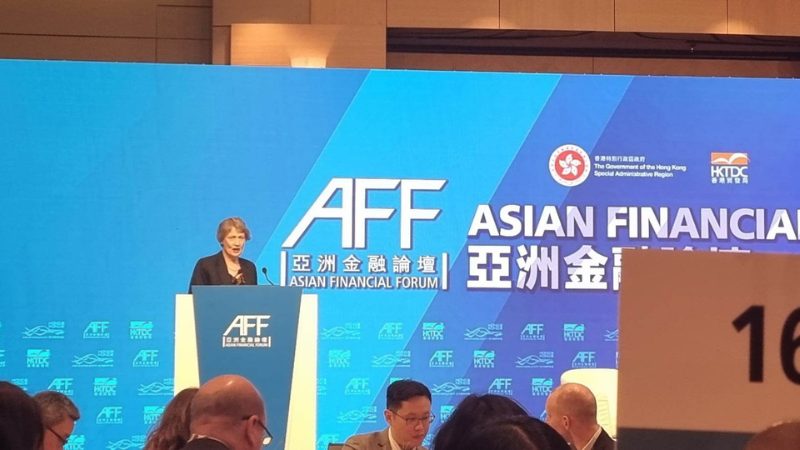Asian Financial Forum in Hong Kong: Day Two
On the second day of Asian Finance Forum (AFF2023), we heard about the forces driving fintech innovation in Hong Kong and how the city is evolving into a data center.
In recent years, Hong Kong has renewed its digitization efforts to improve cross-border data availability between China and the rest of the world. This includes the establishment of The Development Committee for Digital Economy in June 2022.
In a session at AFF2023 on “Data is the new oil”, panelists delved into key talking points in the global data landscape as well as developments in data governance.
Joseph ChanUnder Secretary for Financial Services and the Ministry of Finance in Hong Kong, said: “Through the collection of various data in the economic system, followed by the digitization, organization and analysis of these data, we can better understand the operation of our entire economy and also various individual segments. And with that, we can increase efficiency and promote innovation.
“Hong Kong is pushing forward fintech development to accelerate the development of Hong Kong’s digital economy. Last year we established the Digital Economy Development Committee to advise the government on digital economy development in Hong Kong, and to recognize the importance of data across borders.
“Let’s look at a fintech project called eTradeConnect, a large-scale blockchain-based cross-bank trade finance platform. It strives to improve the efficiency, transparency and security of trade finance digitization of paper documents to effectively reduce financing costs for SMEs and improve trust between banks and SMEs by minimizing the risk of duplicate financing by banks due to human error or other potential fraud cases.
“Such cross-platform connectivity has actually simplified and accelerated the trade finance process by reducing the need for the exchange of paper documents for the development of integrated online financial services between two markets, thereby also strengthening the economic development of the Greater Bay Area. So we can see that when in terms of adoption, using fintech can definitely help.”

Fintech innovation
To continue on the theme of fintech innovation, we also heard from a panel included Victor Yim of Cyberport Hong Kong, Crystal Fok of Hong Kong Science and Technology Parks Corporation, Stephanie Yuen of FinTech Association of Hong Kong and SK LEE of RD technologies.
The group highlighted the city’s strength as an international financial center and how the city is poised to assume a leading role in the fintech industry across the APAC region.
“Hong Kong is a leading market in fintech. If you can do it in Hong Kong, you can do it elsewhere,” said Yim, head of fintech at Cyberport, a digital ecosystem that houses over 380 fintech companies.
While Yuen commented that “Fintech 2.0 is beginning to deepen the financial services offered [in Hong Kong]can we cooperate with the Greater Bay Area (Guangdong–Hong Kong–Macao Greater Bay Area) to create an even bigger market.”

Focus on climate
Looking back to the start of day two of AFF2023 and proceedings began with Christiana Figueres, executive secretary at UN Framework Convention on Climate Change. She shared her views on the roles that regulators, financial institutions and business leaders play in limiting global warming and how they can contribute to achieving climate goals.
She said: “We need both speed and scale to tackle climate change. There may be commitment and implementation, but the distance between these two things is quite long. It is time to wake up from our ‘business as usual’ mindset and be able both understand the risks we face, but also the opportunities.
“Because not only would we avoid the worst impacts, but we would open the door to a world out there that’s more stable, that’s fairer, that’s much more prosperous, it’s more efficient, and certainly one that’s healthier. It is a pretty compelling argument to do what is our responsibility to do.”

Diversity discussion
While in an introductory luncheon speech, Helen Clark, the former Prime Minister of New Zealand, shared their thoughts on how promoting inclusion in society can create more robust economies.
When asked what the financial and corporate worlds need to do to help address inequality faced by women, Clark offered the following advice: “Make sure that the culture in your workplace is truly inclusive of women, that women feel safe and valued, and that they can see that it is a good career for them. in the company.
“Because something has to explain the drop-off between the level of new recruits and those who are starting to get on the leadership ladder. There is a 20 percent gap, and I think the gap can be bridged if we clearly value a woman’s contribution.”


